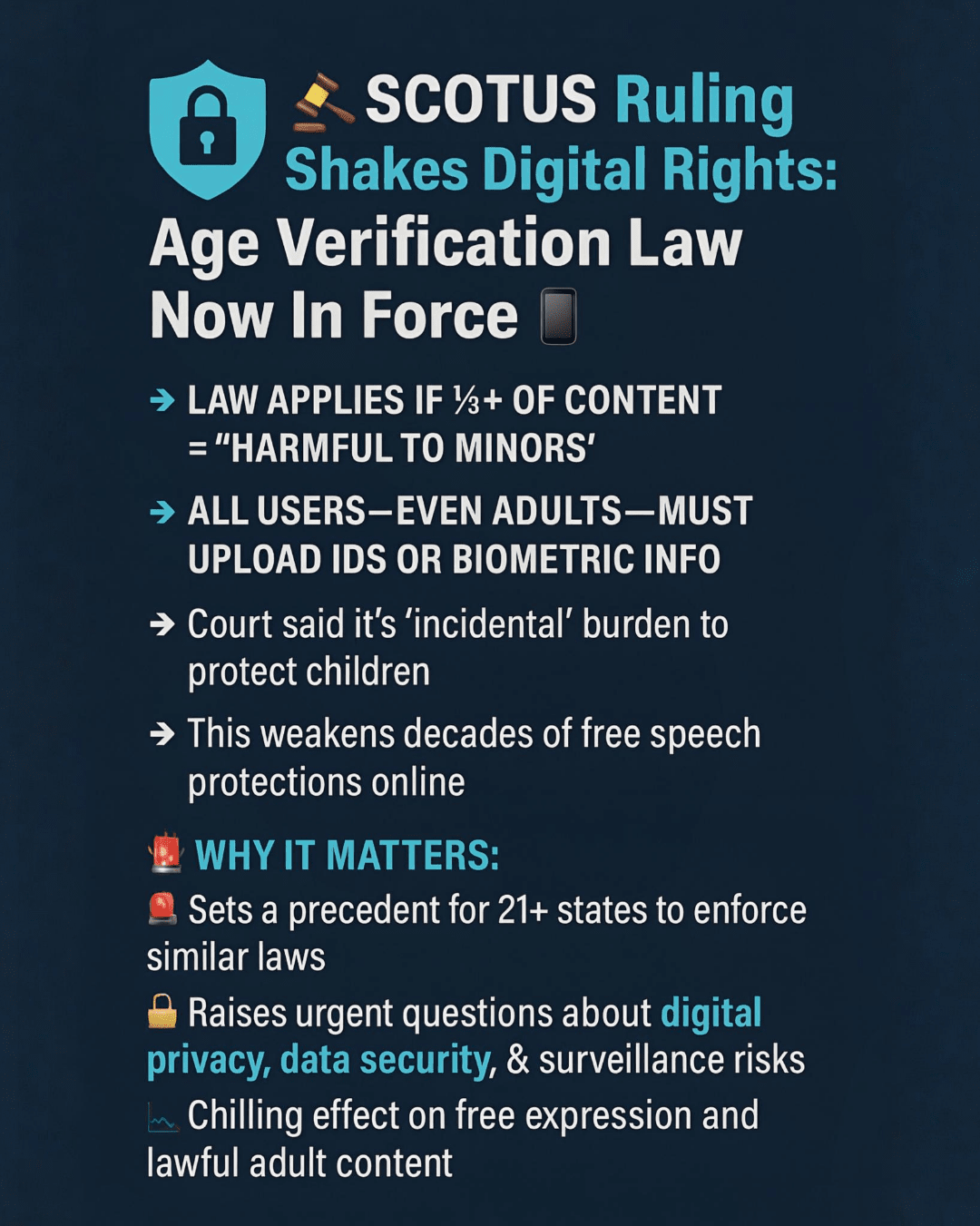🔐 Supreme Court Upholds Age Verification Law
What It Means for Free Speech, Privacy, and the Internet's Future
On June 27, the U.S. Supreme Court upheld Texas’s HB 1181, mandating strict age verification (digital ID or biometric scans) for websites where over ⅓ of content is deemed "harmful to minors."
This ruling in Free Speech Coalition v. Paxton could reshape the internet as we know it.
🧠 Key Takeaways:
- All users—including adults—must now verify their age through personal IDs or biometric data to access lawful content.
- The Court applied intermediate scrutiny, rejecting decades of precedent that required strict scrutiny for restrictions on adult speech.
- The privacy and cybersecurity implications are vast: data collection, storage risks, and potential for misuse.
- 20+ states are poised to follow suit with similar legislation.
⚠️ Why It Matters:
This ruling sets a concerning precedent for how digital rights are balanced against regulatory goals. It could lead to:
- Massive privacy intrusions
- Suppression of lawful speech
- Broad government control over digital access
Organizations like the EFF and ACLU warn this could significantly erode First Amendment protections and chill innovation in privacy-preserving technologies.
💬 We'd like to hear from you: Do age verification mandates strike the right
balance between child safety and adult freedoms? Or are we moving toward a
surveillance-by-default internet? Let us know at social (at) neteng.pro!
Full analysis:
🔗 eff.org/deeplinks/2025/06/todays-supreme-court-decision-age-verification-tramples-free-speech-and-undermines
